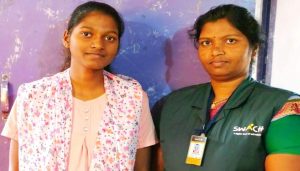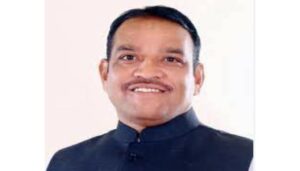Infosys Prize for Six Top Researchers in Science and Humanities
Bengaluru – Feb 6 2018: The Infosys Science Foundation (ISF) honored the winners of theInfosys Prize 2017at an awards ceremony in Bengaluruand celebrated their inspiring journeysand contributions to science and research. The Infosys Prize is given acrosssixfields: Engineering and Computer Science, Humanities, Life Sciences, Mathematical Sciences, Physical Sciences and Social Sciences. The Chief Guest, Prof. Kip Thorne, Feynman Professor of Theoretical Physics, Emeritus at the California Institute of Technology (Caltech) andNobel Prize 2017 Laureate, felicitated the winners across the six categories and awarded each laureate a purse of INR 65 lakhs, a 22-karat gold medallion and a citation certificate.
Trustees of the Infosys Science Foundation, Mr. K. Dinesh, President of the Board of Trustees, Mr. N. R. Narayana Murthy, Mr. Nandan Nilekani, Mr. T. V. Mohandas Pai, Mr. S. Gopalakrishnan, and Mr. Srinath Batni, were present at the event. The event was attended byeminent scientists and academicians from India and abroad, business leaders, young researchers and students.
In his welcome address, Mr. K. Dinesh, President, Board of Trustees, Infosys Science Foundation said, “Celebrating extraordinary talent in research is pivotal to the Infosys Science Foundation through the Infosys Prize. The winners this year – three women and three men – are a true testimony to the symbiotic relationship between science and society. The research work of the Infosys Prize 2017 laureates blurs lines between disciplines. The laureates’ research includes the computational machinery of the brain, DNA architecture to better understand the faults in living cells, identifying genetic markers for breast cancer, an attempt at solving one of the Millennium Prize problems—the Riemann Hypothesis, the importance of memory and forgetting in forming our sense of self and identity, and law and society in the digital age. Their research pushes boundaries and explores new frontiers in human knowledge. We, at the Infosys Science Foundation, are extremely proud of all the winners and their contributions that will certainly benefit individuals and society, even beyond our time.”
Prof. Kip Thorne, Feynman Professor of Theoretical Physics, Emeritus at the California Institute of Technology (Caltech) and Nobel Prize Laureate congratulated the winners and commended the extraordinary work that the Infosys Science Foundation is doing to encourage scientific research in India.
“The Infosys Science Prize, like the Nobel Prize, is an inspiration for young scientists and the general public alike: It calls attention to the beauty of science, and also the power of science to make human life better, both culturally and materially”, he said in his address.
The winners were chosen from 236 nominations by jurors headed by eminent academics: Prof. Pradeep K. Khosla(University of California, San Diego) for Engineering and Computer Science;Prof. Amartya Sen(Harvard University) for Humanities;Dr. Inder Verma(Salk Institute of Biological Sciences) for Life Sciences;Prof. Srinivasa S. R. Varadhan(New York University) for Mathematical Sciences;Prof. Shrinivas Kulkarni(California Institute of Technology) for Physical Sciences; andProf. Kaushik Basu(Cornell University and former SVP, World Bank) for Social Sciences.
The laureates of the Infosys Prize 2017 are:
Engineering and Computer Science
Prof. Sanghamitra Bandyopadhyay,Director, Indian Statistical Institute (ISI), Kolkata,for a scholarly record in algorithmic optimization and for its significant impact on biological data analysis. Her discoveries include a genetic marker for breast cancer, determination of co-occurrence of HIV and cancers, and the role of white matter in Alzheimer’s disease.
Humanities
Prof. Ananya Jahanara Kabir,Professor of English Literature, King’s College London,for her highly original explorations of the long-standing historical elements – conceptual, social and cultural – in colonial modernity, and for her subtle and insightful ethnography of cultural and political life in Kashmir.
Life Sciences
Prof. Upinder Singh Bhalla,Professor, National Centre for Biological Sciences (NCBS), Bengaluru,for his pioneering contributions to the understanding of the brain’s computational machinery. His investigations have revealed essential neuronal computations that underlie the ability to acquire, integrate and store complex sensory information, and to utilize that information for decision and action.
Mathematical Sciences
Prof. Ritabrata Munshi,Professor, Tata Institute of Fundamental Research (TIFR), Mumbai and Indian Statistical Institute (ISI), Kolkata, for his outstanding contributions to analytic aspects of number theory. Besides ingenious contributions to the Diophantine problem, he has established important estimates known as sub-convexity bounds for a large class of L-functions with methods that are powerful and original.
Physical Sciences
Prof. Yamuna Krishnan,Professor, Department of Chemistry, University of Chicago,for her ground-breaking work in the emerging field of DNA architecture. By successfully manipulating DNA – the building blocks of life – to create biocompatible nanomachines, she has created novel ways of interrogating living systems, increasing our knowledge of cell function and getting one step closer to answering unresolved biomedical questions.
Social Sciences
Prof. Lawrence Liang,Professor, School of Law, Governance and Citizenship, Ambedkar University Delhi,in recognition of his creative scholarship on law and society. His prodigious output in the fields of copyright law, digital technologies and media, and popular culture raises probing questions about the nature of freedom, rights, and social development. His provocative answers link historical context and ethical practice in unexpected and illuminating ways.







